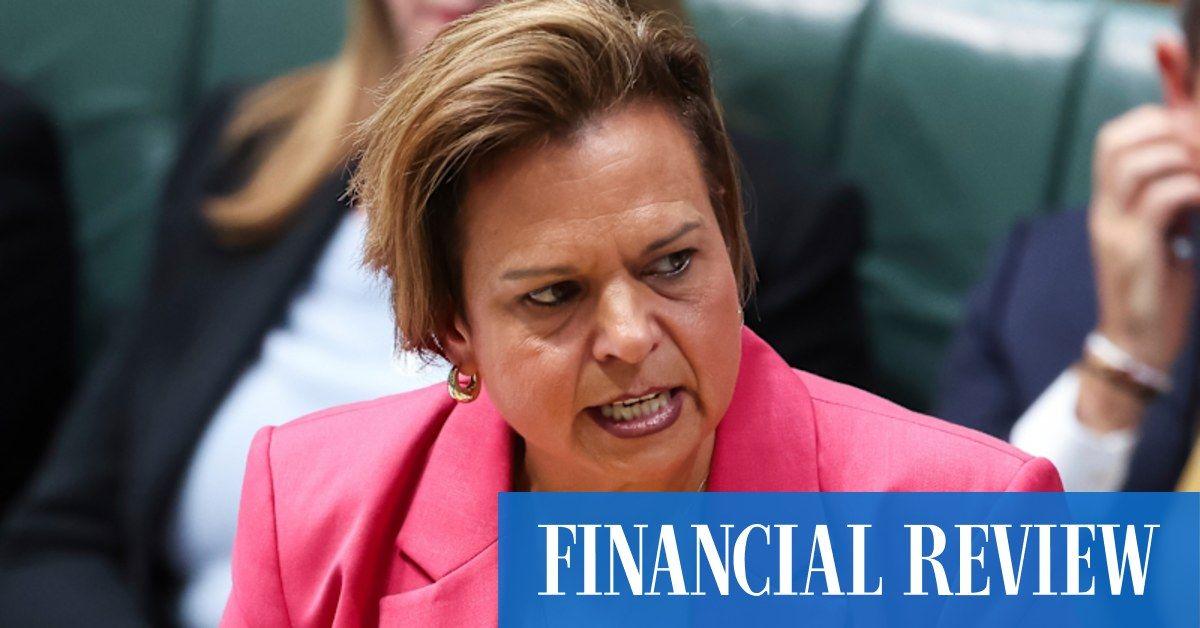OpenAI Breaks Ranks with Tech Council of Australia on Copyright Issues, Commits to Australian Presence
2 Sources
2 Sources
[1]
Open AI breaks ranks with Tech Council of Australia over heated copyright issue
Chief global affairs officer of company behind ChatGPT tells Sydney audience 'we are going to be in Australia, one way or the other' Open AI has broken ranks with the Tech Council of Australia over copyright restrictions, declaring it is "going to be in Australia, one way or the other". Chris Lehane, the chief global affairs officer of the artificial intelligence company responsible for ChatGPT, gave a keynote address at SXSW Sydney on Friday, where he covered the geopolitics of AI, Australia's tech future - and the global debate around using copyrighted material to train large language models. Scott Farquhar, the Tech Council chief executive and Atlassian co-founder, has previously said Australian copyright law "hurts a lot of investment of these companies in Australia". In August, it emerged the Productivity Commission was examining whether technology firms should be exempt from copyright rules that stop companies mining text and data to train AI models. But, when asked whether Australia could lose investment in AI development and datacentres if it didn't loosen its copyright laws to fair use, Lehane told the audience: "No ... we are going to be in Australia, one way or the other." Lehane said countries generally chose one of two positions when it came to copyright restrictions and AI. One was to take a US-style fair use approach to copyright, allowing for the development of "frontier" (highly advanced, large-scale) AI, while the other was to maintain a historic position on copyright, limiting AI's scope. "We will engage in either country - we will find ways to work with those who want to build up big frontier models and have robust ecosystems, or those who just want to have much more narrowly defined AI," he said. "We will work with them under either scenario, regardless." When questioned about Sora 2 - Open AI's new video-generating model - being launched and monetised before copyright use had been ironed out, he said the company was benefiting "everyone". "This is the nature of how technology works. Innovations come along, and then societies adapt to those innovations," he said. "We are a non-profit, and our purpose is to build AI that benefits everyone ... in the same way that a couple of generations ago, people could go to the library and learn." Open AI on Friday suspended the ability to generate videos featuring likenesses of Martin Luther King Jr after his family complained about the technology. Lehane also said China and the US were engaged in a "very real competition" to shape the future of global AI, pitting values head-to-head. "We don't necessarily think about this as a fight as much as it is a competition - but it is a very real competition, and the stakes are pretty significant," he said, adding US-led frontier models will "inherently be built on democratic values", while those of China will "probably" be built on autocratic norms. "One of the two will end up being the player that the rest of the world builds on," he said. When asked whether he was confident that America would remain a democracy, he said, "democracy, as others have said, tends to be a very messy process - but the US has demonstrated over time that it gets this stuff right." US and its allies - Australia included - are going to have to start generating a gigawatt of energy on a weekly basis to develop the infrastructure needed to maintain a "democratic lead" on AI, while Australia has the potential to develop its own frontier AI, he added. "Australia occupies a really unique position" in that it has a very high AI user base, 30,000 developers, "a tonne of talent", a fast-growing renewable sector, fibre optics connections with Asia and is a Five Eyes nation, he said.
[2]
OpenAI courts Australia in its $771b global infrastructure push
Gift 5 articles to anyone you choose each month when you subscribe. One of OpenAI's top executives has arrived in Australia seeking data centre deals, with the start-up planning to splurge as much as $US500 billion ($770.9 billion) on infrastructure globally to support the ballooning growth in artificial intelligence. The AI company's head of global policy Chris Lehane will also meet with federal Industry Minister Tim Ayres and Assistant Science Minister Andrew Charlton to discuss legislative issues around access to renewable energy, data centre approvals and the use of copyrighted material to train AI systems.
Share
Share
Copy Link
OpenAI's chief global affairs officer, Chris Lehane, declares the company's commitment to Australia despite copyright restrictions. The AI giant plans massive global infrastructure investments and engages with Australian officials on key AI-related issues.
OpenAI's Stance on Australian Copyright Issues
OpenAI, the company behind ChatGPT, has taken a bold stance on copyright restrictions in Australia, diverging from the position of the Tech Council of Australia. Chris Lehane, OpenAI's chief global affairs officer, declared at SXSW Sydney that the company is committed to operating in Australia regardless of copyright laws
1
.This statement contradicts the Tech Council's earlier warnings that strict copyright laws could deter AI investment in the country. Scott Farquhar, Tech Council CEO and Atlassian co-founder, had previously expressed concerns about Australian copyright law hindering investment from AI companies
1
.Global Copyright Approaches and OpenAI's Strategy
Lehane outlined two general approaches countries take regarding copyright and AI:
- A US-style fair use approach, enabling the development of advanced, large-scale AI.
- Maintaining traditional copyright positions, which may limit AI's scope.
OpenAI plans to adapt its operations to either scenario, working with countries to build robust AI ecosystems or operate within more narrowly defined AI parameters
1
.OpenAI's Massive Infrastructure Investment Plans
As part of its global expansion strategy, OpenAI is planning to invest up to $770.9 billion in infrastructure worldwide. This significant investment aims to support the rapid growth of artificial intelligence technologies
2
.Related Stories
Engagement with Australian Officials
Lehane's visit to Australia includes meetings with federal Industry Minister Tim Ayres and Assistant Science Minister Andrew Charlton. These discussions will focus on critical issues such as:
- Access to renewable energy
- Data centre approvals
- The use of copyrighted material for AI training
2
Global AI Competition and Australia's Potential
Lehane highlighted the ongoing competition between China and the US in shaping the future of global AI. He emphasized that US-led frontier models would be built on democratic values, while China's models might reflect autocratic norms
1
.Australia's unique position in this landscape was also noted, with Lehane citing the country's high AI user base, 30,000 developers, growing renewable sector, and strategic connections with Asia as factors that could enable Australia to develop its own frontier AI
1
.References
Summarized by
Navi
[2]
Related Stories
OpenAI NextDC strike $4.6 billion deal to build massive AI data centre in Sydney
05 Dec 2025•Business and Economy

Australia Unveils National AI Plan: Light-Touch Regulation and Data Centre Investment Focus
01 Dec 2025•Policy and Regulation

Australia Rejects Copyright Exemption for AI Training, Prioritizing Creative Industries
26 Oct 2025•Policy and Regulation

Recent Highlights
1
Google Gemini 3.1 Pro doubles reasoning score, beats rivals in key AI benchmarks
Technology

2
ByteDance's Seedance 2.0 AI video generator triggers copyright infringement battle with Hollywood
Policy and Regulation

3
ChatGPT cracks decades-old gluon amplitude puzzle, marking AI's first major theoretical physics win
Science and Research





